The recent government’s National Reconciliation and Peace Center’s (NRPC) rejection of the planned Committee for Shan State Unity (CSSU) is a very unfortunate as it means the deterioration of relationship between the Shan umbrella organization and the government.
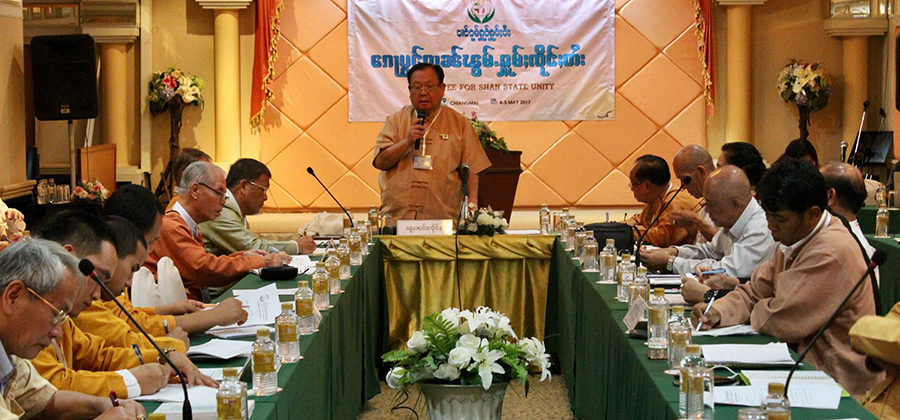
On August 27, chairman Sai Aik Pao said that the CSSU was contacted by the NRPC and told that a meeting scheduled for September 3-4 in the Shan State capital would not be allowed to go ahead.
The CSSU, coalition of political parties, armed organizations and civil society groups was also barred from holding a meeting in Chiang Mai, Thailand, last July after the Thai authorities reportedly came under pressure from the Burmese government, as Brigadier General Khin Zaw, the Myanmar Military Attaché for Thailand, requested Thai authorities not to allow the meeting.
Earlier in March 2016, the three-day planned annual meeting of the CSSU ended after only one day due to pressure from the local military in Rangoon. Sai Leik, the spokesperson for the Shan Nationalities League for Democracy (SNLD)—the party which helped to organize the meeting—said that the managers of both hotels, Micasa Hotel and Summit Parkview Hotel, were pressured by the authorities against hosting the event.
But this time around it comes directly from the National League for Democracy (NLD) government and this makes the Shan and as well the other ethnic nationalities and Ethnic Armed Organizations (EAOs) think that the NLD and the Tatmadaw are now totally on the same page where ethnic nationalities public consultation or political dialogue is concerned. In other words, the implementation of policy line for minimum public participation, with limited ethnic elitist top down decision-making, so that they could be easily manipulated either by coaxing or buying up ethnic military leaders with all sorts of available incentives.
Many within the ranks of the ethnic nationalities already think that this trend or policy line is being implemented, giving prominence to small EAO leaders as representatives or spokespersons of the whole ethnic representation, besides giving them opportunities to do public consultation meetings unhindered, while the major groups like Restoration Council of Shan State (RCSS) and Karen National Union (KNU) are being blocked, harassed and even attacked militarily although they are signatories of the Nationwide Ceasefire Agreement (NCA).
Thus, the joining hand of the NLD and the Tatmadaw openly on limiting the political maneuvering ground and building cohesion of the EAOs among their own people, selectively such as the Shan and Karen, is seen as a ploy to weaken the ethnic nationalities’ unity as a whole, a sort of divide-and-rule, so to speak.
Pyidaungsu Institute director Khuensai Jaiyen correctly emphasized the need for “all-inclusive participation and negotiation” in order to build peace in Burma.
“The country will never get peace if [opportunities] are being opened for one group and closed for another,” he said.
In a report in Shan Herald Burmese section he said: “We don’t know why the NRPC don’t allow the CSSU meeting. A signed letter was sent by the military attache when it was rejected the last time (in Chiang Mai 2017), stating that there were groups involved which have not signed the NCA. It could allso be the same this time.”
He stressed that a new political culture promoted by the ex-President Thein Sein “to resolve political problems through political means and not militarily” seems to be getting nowhere. He said that all groups should be able to participate in public consultation meetings, even though they are not NCA signatories, as they are concerned with peace-building.
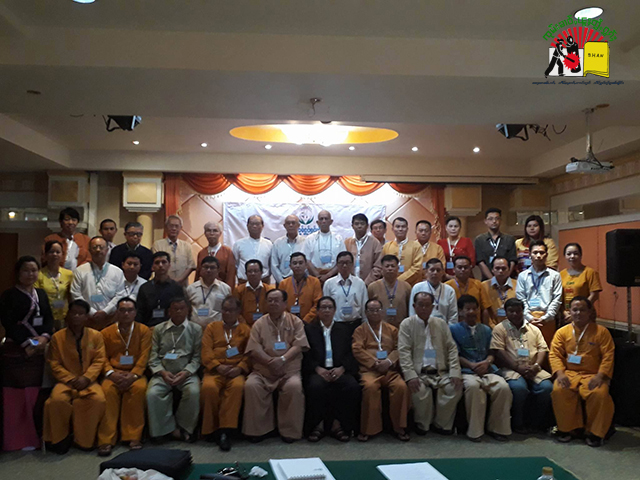
The aim of the CSSU, Sai Aik Pao the present Chairman said, was to “build solidarity and unity under the law among all ethnic people.”
Shan Nationalities League for Democracy spokesperson Sai Lek—whose party is a CSSU member—told Shan Herald that the implications of the government’s actions concerning the coalition could be far-reaching.
“NRPC chairperson Daw Aung San Suu Kyi, the President, and the commander-in-chief must clearly know that the CSSU is not going to resist or go against the country,” he said. “If they don’t clearly understand the purpose of the CSSU and if they try to ban every CSSU meeting, it will affect trust-building in the peace process. It is also an obstacle for cooperation and participation. The country’s leaders must consider this and must prevent this from happening in the future,” Sai Lek explained.
In sum, if this government’s trend of blocking ethnic public consultation or state-level political dialogue is to continue and the practice of opening opportunities for some to conduct peace process and curtailed the others, achieving reconciliation and political settlement will still be a long way off.
After seven years of peace negotiation process, we are still unable to agree even on how to conduct public consultation in ethnic states in an all-inclusive manner, not to mention the real political give and take, which is most crucial in trying to build a political system that all could identify and live with.





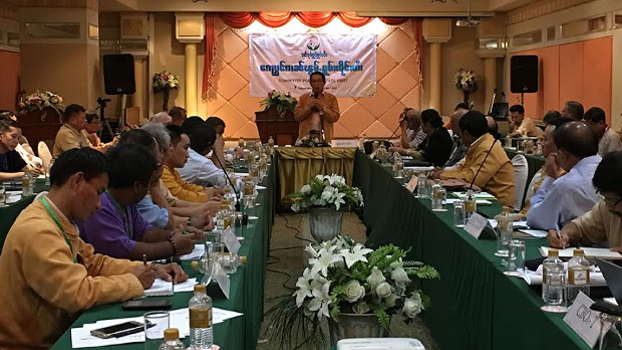


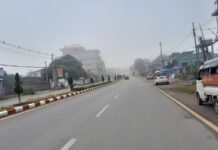
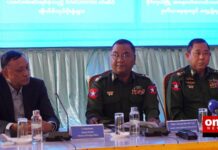


Leave a Comments